For businesses scaling up, outsourcing is more than just a cost-saving strategy—it’s a game-changer that enables companies to unlock innovation and enhance operational efficiency.
However, as outsourcing expands, so do the complexities of regulatory and statutory compliance. Navigating compliance regulations across various industries requires specialized knowledge, advanced technologies, and dedicated resources.
Outsourcing can not only reduce costs but also help businesses ensure compliance with industry regulations, minimizing legal risks and enhancing their reputation as trustworthy players in the market.
In this article, we’ll cover six key compliance factors you should consider when selecting an outsourcing partner and how these practices can streamline your operations and build trust.
Requirement 1: Robust data protection and privacy framework
In an era where data breaches can destroy a company’s reputation, securing personal and business data is paramount. Regulations like the General Data Protection Regulation (GDPR) and California Consumer Privacy Act (CCPA) set strict guidelines on how businesses must handle data.
In addition to helping businesses avoid penalties, ensuring data protection allows you to build customer trust. When outsourcing, it’s crucial to partner with a service provider who understands the complexities of various compliance regulations and has robust data protection systems in place.
Best practices:
- Ensure compliance with GDPR/CCPA. Your outsourcing provider should have advanced data protection protocols in place.
- Conduct regular audits. Regularly assess the data management policies of your partners to ensure full compliance.
- Secure data to build customer trust. By securing data, you position your company as a trustworthy, security-conscious business.
Requirement 2: Proven capacity in meeting industry-specific regulations
Each industry has a unique set of regulatory needs. For example, healthcare companies are obligated to follow the guidelines of the Health Insurance Portability and Accountability Act (HIPAA). At the same time, the finance sector adheres to the Payment Card Industry Data Security Standard (PCI DSS), Gramm-Leach Bliley Act (GLBA), and the Sarbanes-Oxley Act (SOX), to name a few.
These regulations go beyond legal requirements—they’re essential for protecting stakeholders and upholding ethical operations. Compliance is critical in maintaining trust and achieving operational excellence in your industry. A thorough understanding and careful navigation of these regulations are key to sustaining your credibility and long-term success.
Best practices:
- Choose a partner with deep industry expertise. Look for an outsourcing provider with a proven track record of compliance in your specific industry.
- Verify certifications. Ensure they possess certifications such as ISO 27001 and PCI DSS to verify their ability to meet your sector’s regulatory demands.
Learn how Sourcefit manages industry-specific compliance.
Requirement 3: Experience with regional employment and labor laws
Observing region-specific labor policies ensures fair and ethical management practices, no matter where employees are based. These regulations, which cover everything from fair wages to safe working conditions, protect both your employees and your business.
When outsourcing, it is critical to follow these regulations to retain your company’s ethical standards and avoid costly disputes.
Best practices:
- Adhere to local and international standards. Your outsourcing partner should demonstrate a commitment to ethical employment practices and fair wages.
- Address concerns proactively. Regularly review compliance and address any concerns immediately to avoid potential disputes.
Requirement 4: Focus on environmental regulations
In today’s environmentally conscious market, sustainability is more than just a slogan; it is a business need. Environmental regulations help companies reduce their carbon footprint, and non-compliance can lead to hefty fines and severely damage brand reputation.
Working with outsourcing providers who prioritize sustainability ensures your business remains compliant while appealing to eco-conscious consumers.
Best practices:
- Embrace sustainability as a core value. Choose an outsourcing partner that integrates sustainable practices into their operations.
- Ensure transparency. Ensure that the environmental impact of your outsourcing partners is regularly reported and mitigated.
Requirement 5: Excellent track record in international regulatory compliance
As businesses expand globally, understanding and meeting compliance requirements becomes increasingly complex. For instance, complying with ISO standards and cross-border data regulations ensures consistency and legal compliance across different regions.
By outsourcing to ISO-compliant BPO companies, you can ensure that your operations are consistent and globally competitive. This reduces legal issues, enhances credibility, and allows you to scale swiftly and confidently.
Best practices:
- Ensure global compliance. Select outsourcing partners well-versed in ISO standards and experienced in navigating complex international laws.
- Update contracts regularly. Review contracts regularly to stay up-to-date with the most recent legislation and avoid legal complications.
Requirement 6: Risk mitigation and security compliance
In an era of increasingly sophisticated cyber threats, robust risk management and security compliance must be a top priority. Protecting your business against these dangers requires more than just meeting basic standards—it demands proactive measures, expert guidance, and constant vigilance.
Outsourcing to security-focused providers equips your business with cutting-edge protection, from advanced threat detection to comprehensive incident response strategies. This approach not only secures your data but also fortifies your operations, ensuring resilience against emerging threats.
By prioritizing security compliance, you safeguard your most valuable assets and maintain the trust of your customers and stakeholders.
Best practices:
- Enhance threat detection. Ensure your outsourcing partner employs the latest cybersecurity tools to detect and mitigate risks before they escalate.
- Conduct security audits regularly. Conduct regular security audits to assess compliance with industry standards and regulatory requirements.
Turning compliance into a competitive edge
Compliance should not be viewed as a mere box to tick. Instead, it should be seen as a strategic asset that drives growth, builds trust, and positions your business as a leader in your industry.
While vetting outsourcing providers, choose a partner that offers compliance expertise to keep your business aligned with critical regulations. In our experience, compliance is more than just a legal obligation; it’s the bedrock of your long-term success.
Partner with Sourcefit
At Sourcefit, we specialize in helping businesses navigate complex compliance landscapes. Our tailored solutions not only help you stay compliant but also give you the competitive edge needed to succeed.
Contact Sourcefit today to see how our outsourcing solutions can support your compliance efforts and propel your business forward.
Just the facts: FAQs for compliance requirements when outsourcing
-
How can outsourcing help with my compliance requirements?
Choosing the right BPO partner with advanced security and compliance measures ensures that your business stays aligned with critical regulatory requirements. This reduces legal risks, data breaches, and reputational damage. It allows you to focus on core business functions while experts manage compliance, turning potential risks into strategic advantages.
-
How does outsourcing help with data protection and privacy regulations?
Outsourcing to providers with expertise in data protection ensures your business follows regulations like GDPR and CCPA, safeguarding sensitive information and building customer trust through robust data management protocols.
-
What are the different industry-specific regulations, and why should I care?
Industry-specific regulations, such as HIPAA for healthcare or the Sarbanes-Oxley Act for finance, are critical for maintaining operational integrity and avoiding sector-specific penalties. Outsourcing to a provider with deep industry knowledge ensures compliance and improves your operations within regulatory frameworks.
-
How can outsourcing keep you compliant with employment and labor laws?
Outsourcing partners with strong labor standards help ensure compliance with regional and international employment laws, promoting ethical treatment of employees and protecting your business from legal risks.
-
Why is environmental compliance important in outsourcing?
Environmental regulations are vital for sustainable business practices. Outsourcing to providers who prioritize sustainability helps your business comply with these regulations, avoiding fines and appealing to eco-conscious consumers.
-
What role does international compliance play in outsourcing?
International compliance ensures that your operations are legally consistent across borders. Outsourcing to providers experienced in global standards like HIPAA regulations and ISO certifications mitigates risks and enhances your company’s credibility in international markets.
-
How can outsourcing help with risk mitigation and security compliance?
Outsourcing to security-focused providers ensures your business is protected against cyber threats through advanced threat detection and incident response strategies, safeguarding your operations and maintaining customer trust.For more detailed insights and expert advice on delivering regulatory-specific, compliant business solutions, visit sourcefit.com.


















